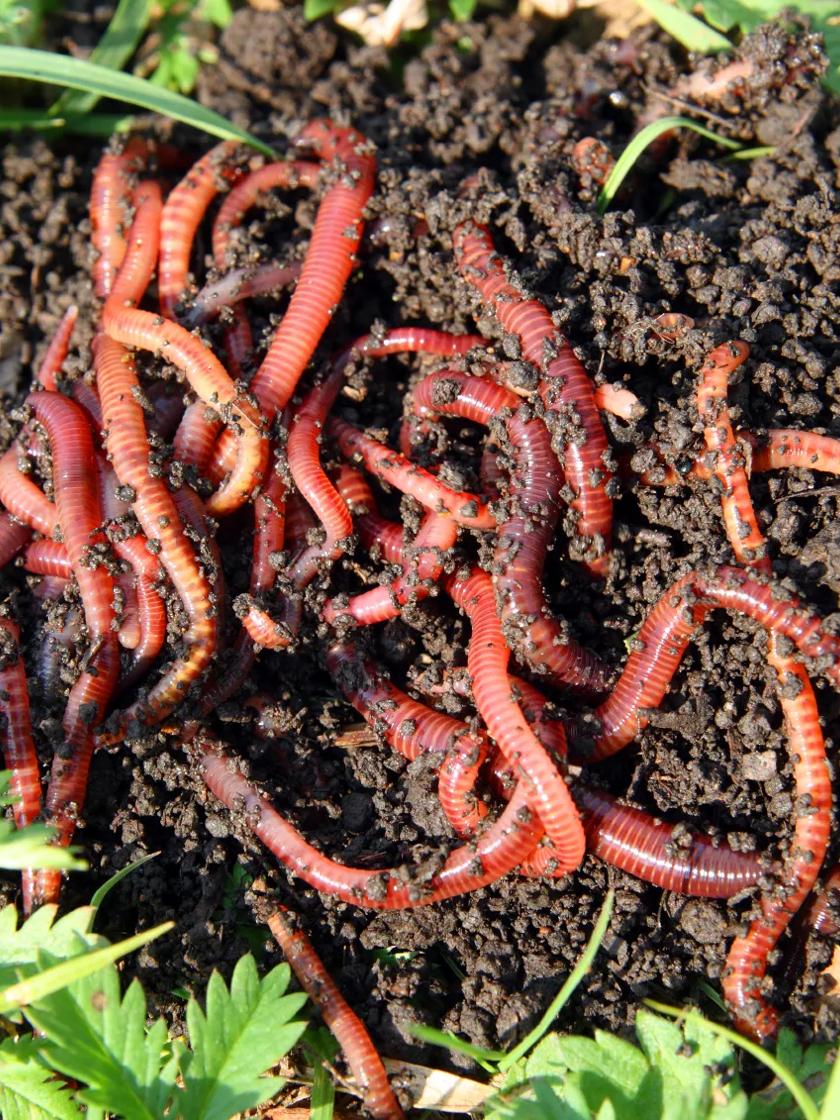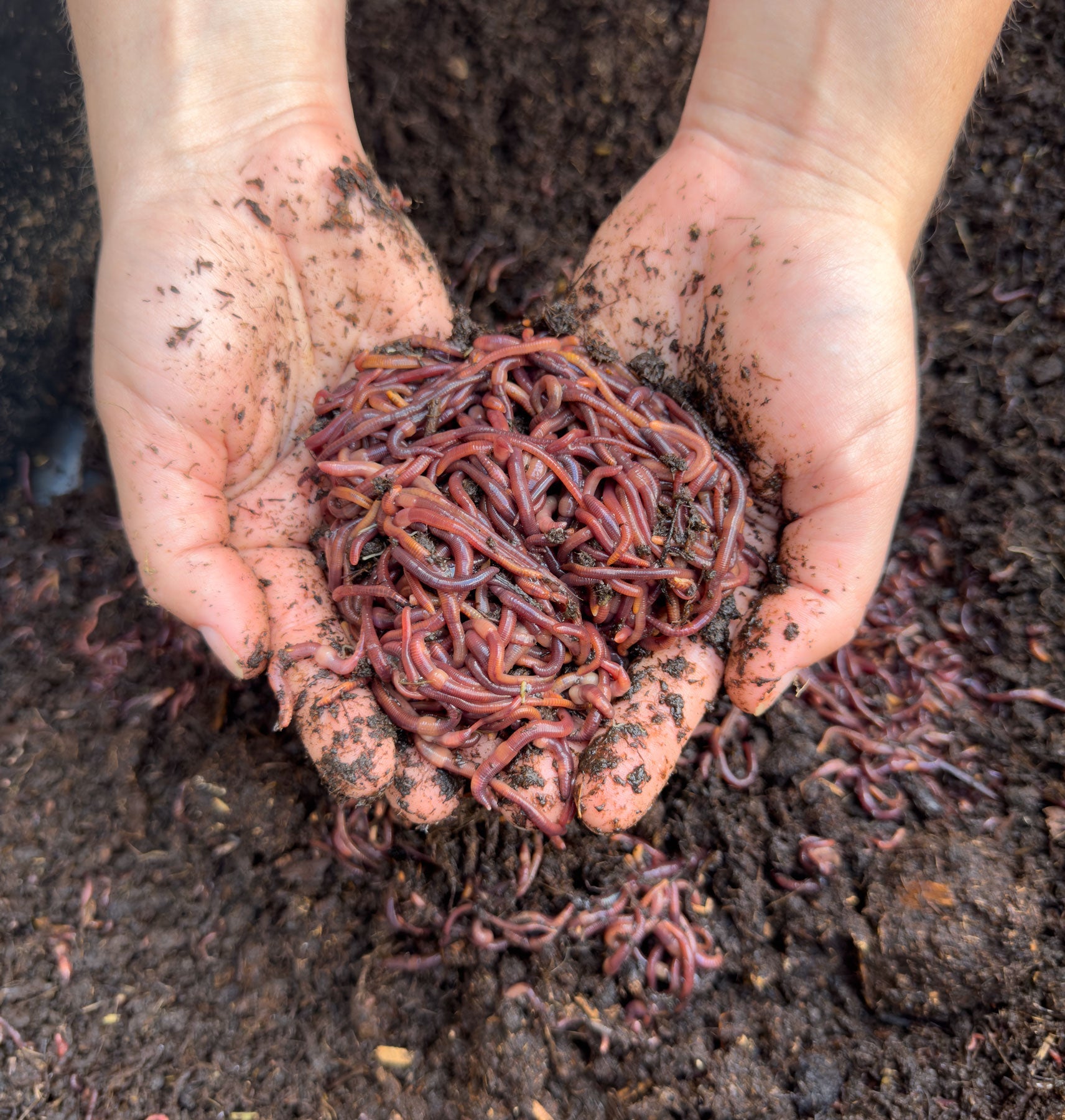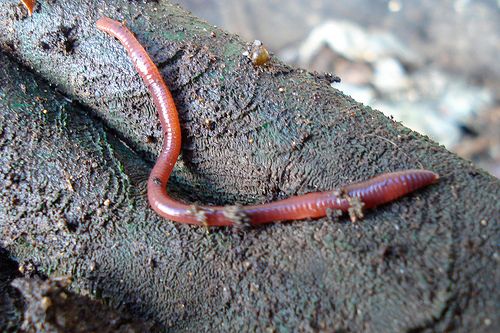Red Wigglers: The Unsung Heroes of Organic Waste Recycling
Red wigglers, or Eisenia fetida, serve as crucial agents in the natural waste recycling procedure, transforming discarded products into valuable vermicompost. As the globe increasingly looks for remedies to deal with waste accumulation and enhance agricultural performance, comprehending the duty of these worms ends up being vital.
What Are Red Wigglers?
The amazing strength of red wigglers, clinically understood as Eisenia fetida, underscores their critical function in natural waste recycling. These little, reddish-brown earthworms are normally found in decomposing raw material, such as garden compost piles and manure lots. Lake Hickory Bait. Unlike other earthworm types, red wigglers thrive in nutrient-rich atmospheres and are highly reliable at breaking down organic materials, making them necessary for vermicomposting

Benefits of Composting With Worms
Composting with worms, especially red wigglers, uses many benefits that enhance both waste administration and dirt health and wellness. Initially, these worms effectively damage down organic waste, converting it into nutrient-rich vermicompost that improves dirt. This process accelerates decomposition, enabling a faster recycling of cooking area scraps and various other natural materials compared to traditional composting methods.
In addition, the vermicompost generated by red wigglers is including beneficial microbes, which assist enhance dirt framework, aeration, and moisture retention. This boosts the overall wellness of plants, advertising vigorous development and boosted returns in gardens and agricultural setups. Moreover, the use of worms in composting minimizes the production of greenhouse gases, such as methane, adding to a much more lasting waste administration system.

Exactly How to Begin Vermicomposting
Developing a vermicomposting system is a straightforward process that can produce substantial advantages for both waste management and soil enrichment. To begin, select an appropriate container, such as a plastic container or wood box, with sufficient ventilation holes to guarantee correct airflow. The dimensions should preferably be around 2 feet by 3 feet, allowing sufficient area for the worms to flourish.
Next, prepare bed linens material, which can contain shredded newspaper, cardboard, or coconut coir. This bedding should be moistened to produce an appropriate habitat for the worms. Once the bedding is in location, introduce red wigglers (Eisenia fetida) into the container, usually around one pound of worms for every square foot of surface location.
Following the placement of worms, add organic waste, such as fruit and veggie scraps, coffee grounds, and smashed eggshells. With these actions, you will effectively initiate a vermicomposting system that adds to sustainable waste management and improves your soil.
Keeping a Healthy Worm Container
Delicately blending the bedding and food scraps every few weeks prevents compaction and guarantees that all worms have access to oxygen. Furthermore, it is vital to feed the worms properly.
If the container ends up being as well hot or cool, the worms may end up being stressed out. By vigilantly managing these factors, one can maintain a robust and effective worm container.
Effect on Sustainable Living
The successful maintenance of a worm container not just benefits the health of red wigglers yet additionally adds substantially to sustainable living practices. By reusing organic waste, such as kitchen scraps and backyard debris, red wigglers assist divert significant amounts of product from garbage dumps. This decrease in waste not only lowers greenhouse gas exhausts however also reduces the ecological burden connected with waste administration.
Moreover, the spreadings produced by red wigglers serve as a nutrient-rich natural fertilizer, boosting soil wellness and promoting plant development. This natural choice to chemical fertilizers sustains sustainable agriculture and horticulture methods, reducing dependence on synthetic inputs that this post can damage communities. Furthermore, worm composting cultivates understanding of waste monitoring, motivating people and communities to adopt even more lasting practices.

Verdict
In recap, red wigglers serve as important factors to natural waste reusing with their effective decomposition of natural materials. By incorporating vermicomposting into waste management approaches, individuals and areas can significantly reduce waste while promoting ecological sustainability.
Comments on “Use Lake Hickory Bait for Amazing Lawn Health and Gorgeous Greens”